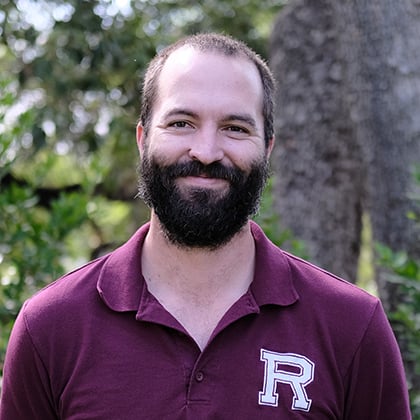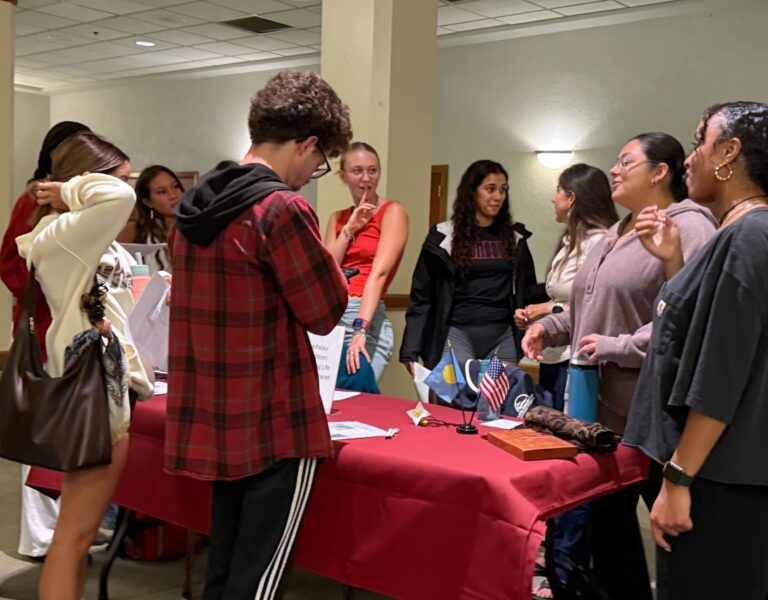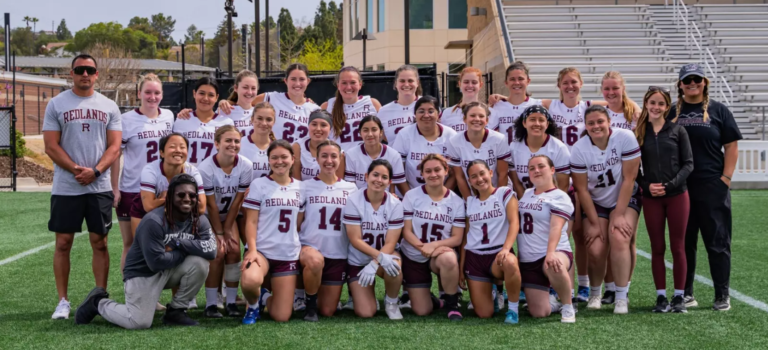There will not be a student president, vice presidents, class senators, or in fact any student government at all during the semester of Fall 2023.
In an unprecedented move in the university’s history, the Associated Students of the University of Redlands (ASUR) decided to suspend its operations in order to revamp its structure. With fewer than 100 votes cast (out of a student body of more than 2500) in the last election and an archaic constitution that does not reflect issues of modern time, the problems of representation and bureaucratic redundancies contributed to the decision, ASUR leaders told the Redlands Bulldog.
According to other ASUR members, a series of internal incidents within the past academic year – conflicting opinions and even allegations of racism and ableism – also brought down morale within ASUR, emphasizing the need for a completely new system of student governance.
“[The system] isn’t representative of where our students are at and what they need, and there’s an opportunity to make something that’s gonna be significantly better, and that’s what we’re focused on,” said Patrick Whalen, faculty advisor to ASUR. “It’s less about what happened in the past and more trying to move forward and align with what we need right now and what folks are gonna need.”

Katie Estrella, a previous faculty advisor to ASUR before Whalen, added, “There was a lot of good intention, but it was just hard to get things done.”
What is ASUR and why should you care?
In short, the Associated Students of the University of Redlands (ASUR) is the student government organization that oversees many major aspects of student life on campus. The organization consists of two branches – Cabinet and Senate – as well as two bodies called Social Affairs and Convocations to manage student events and guest appearances on campus, respectively.
The president of ASUR is elected every fall through a university-wide process of voting. The president then appoints the officers to serve in the Cabinet – these positions include the Senate Chair, the Vice President of Student Organizations & Finance, the Vice President of Communication, and the Vice President of Social Affairs. Senators are voted by class year.
In the past years, students in charge of campus organizations might have needed to reach out to the Vice President of Finance for inquiries on their organizations’ on-campus “bank accounts,” which contain the fundings allocated to them from the pool of ASUR fees. This fee, collected semesterly as part of your tuition bill, is also used to fund other vital campus activities.
“We divide [the funding] up amongst high-impact partners, which are the Multicultural Center, the Office of Career and Professional Development, CDI, and recreation, which is Outdoor Programs and intramural sports. So we fund that and then a portion of the remaining funding goes to just an open project budget that anybody can submit projects for,” said Derrick Ball ‘24, ASUR president during the 2022-2023 school year – and the last.
This is in reference to the works of ASUR senators. These senators may pursue projects in areas that they are passionate about representing, and this – whether it is commuters or transfer students – can lead changes that make your life easier. ASUR can have a direct impact on students’ daily lives, even for those who are not actively involved in student organizations.
ASUR representatives can also participate in higher-level policy-making at the university, sitting on various committees to solve different problems.
“From an administrator’s side, when they wanna get some students in the room quickly or just a general idea, we’re kind of their go-tos,” Ball said. “We can only impact the conversations that we know are going on.”
Where did ASUR fall short?
If some of the above aspects of ASUR or if even the name ASUR itself sound unfamiliar to you, then you’re not alone.
For Whalen, one of the major setbacks to the organization’s operation has been a lack of recognition among students of the importance of ASUR.
“I don’t know that there are a lot of folks who even necessarily know what student government is at this institution and how it works and what its purpose is,” Whalen said.
Whalen also referenced some common misunderstandings students have about ASUR – how controversial decisions like installing an esports facility is often criticized for wasting students’ tuition, when in fact the funding for the facility comes from issued bonds and not tuition money.
“So I think the kind of communication and advocacy piece of that just structurally isn’t set up to be what it needs to be,” Whalen concluded.
Ball also echoed this sentiment in expressing that a lot of students at the university are simply uninterested in participating in and learning about the student government, a phenomenon which might have been amplified by the disruptions caused by the pandemic. He recounted how, at some point after the pandemic, there were only five students running for first-year senate election, a number which was “extremely low” even for a small campus like Redlands.
Whalen called this a “cultural and leadership gap.”
“I think a lot of the sort of handing down of how things work within student government and even more specifically within the campus population of the general student government at this institution [was lost] when they came back from COVID because I think a lot of the folks with that context had moved on and graduated and whatnot,” Whalen said.
Ball added, “Election numbers show that students are not voting because our student government’s not serving them in a way that it needs to.”
During his term, Ball stated that his efforts to increase awareness for ASUR, particularly through social media, have been “significant,” but he doubted that it was “to a level that made a meaningful impact.”
Other shortcomings of ASUR are more deeply rooted in systematic and bureaucratic inefficiencies.
“Our current student government model is not nearly where it should be, as far as effectiveness goes. To my knowledge, it is the same model that we’ve been using since the start of the university,” Ball said. “The structure [that] ends up [being] is similar to the US government, but without the same checks and balances.”
He goes on to explain that the ASUR constitution – the document governing the organization’s operations – is too cumbersome and outdated for modern and daily usage.
“There’s a lot of procedural things that we don’t practice versus the constitution. Some of it for good reasons, some of it because it just slipped through. Some of it, I couldn’t even tell you where we stopped doing it. Just that we did stop doing it,” Ball said.
One such procedure includes making the meeting minutes publicly available by pinning them onto cork boards – this has been changed to simply uploading them onto the university’s webpage, Presence.
The constitution also heavily emphasizes drafting and changing policy, which can be a rather abstract goal to strive for, according to Whalen.
“And I think this is a fairly broad brush, but I think most folks are not involved in student government because [writing policy] is what they want to be doing on behalf of the students,” Whalen said. “I think they want to be advocating for communities and folks in their peers that they care about and having meaningful ways to be able to contribute back to. There is student experience and experience over there, so a lot of those processes and systems were just kind of broken and didn’t really work.”
In addition, how elections for senators represent a significant barrier to equity, simply from the fact that certain groups are more likely to be involved in student life than others – for example, residential versus commuter students.
“And I think it’s really hard to represent the interests of particular constituency groups and be representative when you’re just dividing it up by class,” Whalen said.
Decreasing morale – spotty attendance and slow progress – within the student government body also cemented the need for change.
“I think part of that comes from a feeling of people that they’re not doing effective work,” Ball explained. “It’s kind of a catch-22. It’s hard to do effective work if you’re not there. You don’t wanna be there if you’re not doing effective work.”
But a particular incident last year marked the unrecoverable turning point for ASUR.
According to Ball, a meeting with ASUR staff advisors in the Fall semester led to the conclusion that the chief of staff at that time, Elizabeth Beck ’23, would be fired for the Spring semester. Estrella explained that the decision to terminate Beck comes down to the ASUR president believing that she wasn’t “fulfilling what [he] believed was her duties.”
“I think that we laid out a few different options from our point of view as advisors and staff, and then allowed [the president] to make whatever choice that they saw fit,” Estrella said. “So I knew, we tried to make it clear that the president was supported regardless of whatever choice he decided to make.”
In response to the Bulldog’s inquiries about this matter, Ball stated, “I did not publicly give a reason for that because I wanted to keep that between us. I did not want our conversation and the issues that we have had on student government to be put on public blast for that person because I thought that it would stay between us. It then came out from other people, saying that the reason I fired that person was based on the fact that I didn’t like them or racist reasons, I’m flat out saying that is not true at all.”
The Redlands Bulldog spoke with at least five sources both on and off the record, who made references to several of Ball’s comments relating to race and disability. For instance, sources claimed Ball said that a wheelchair user in the ASUR cabinet should be tied up to another wheelchair-bound person for a “three-legged race.” Ball also often commented on the “diverse” backgrounds of the cabinet members, which some sources interpreted negatively.
“A lot of the comments that Derrick made and the actions he took, a lot of that was perceived as extremely offensive, especially on my part towards not only our identities, but our jobs as people on ASUR,” ASUR Senate Chair Byran Whitehead ‘25 said. “We brought these issues to admin and basically we were told that Derrick was going to be given a talk about the issues of racism, how to become a better leader, things like this.”
But according to Breanna Naylor ‘26, an ASUR senator, no substantive actions were taken after those meetings. “So it’s a little disheartening to be like, ‘Okay, I came here to try to make a difference.’ And this difference isn’t being made.”
Students of color in ASUR continued to feel enraged at what is perceived to be acts of microaggressions from Ball, sources said.

Naylor commented on Ball’s “discriminatory” remarks. “That’s one thing if you’re the person in that group saying it, but if you’re someone who’s outside of that group, and you’re trying to get involved in those racial comedic lines, it’s a little bit awkward.”
This sentiment is not unanimous among ASUR members, however. Enrique Alverde ‘25 believes this issue is a matter of perspectives.
“From the things [that Ball said] that I remember, I can confidently say, I think were with good intentions. And most, if not all of the time, were in response to a racial joke made by another Black member in ASUR.”

Alverde said that Ball had a friendly relationship with Beck, who is Black, even before working together in ASUR. “Every time Elizabeth would make a racial joke, Derrick would laugh, then he would make one, and Elizabeth would laugh back at it. From my perspective, it was always light-hearted, it was always comfortable. Things that Derrick said in the moment ironically never struck me as much as the things that Elizabeth did […] I do remember, on many occasions, feeling uncomfortable because Elizabeth would make a racial joke.”
Afterwards, Whitehead wrote a letter calling for Ball’s impeachment from the position of ASUR president. Whitehead explained his reasoning, “My issue and the issue of multiple other people on cabinet was that racism isn’t excusable, and it isn’t a thing in which it’s a learning opportunity. It’s not a learning experience for Derek, it should be a point in which he should be punished as someone who is not only our [ASUR] president, but who’s also an RA (Resident Assistant).”
The impeachment ultimately did not succeed as it was found out that certain articles in the letter as well as the way it was presented did not comply with the constitution, Alverde said.
Alverde, who intervened to halt the impeachment, further said that he was surprised by Whitehead “rushing” the impeachment as there was no prior discussion about the issue either among ASUR or faculty advisors. He also suggested that not all signatories of the impeachment letter were completely on-board with their names being on the document.
Alverde further clarified his objection to Whitehead’s impeachment letter, “My immediate reaction was, this seems like it’s very quick. It’s very unthoughtful and unintentional. And so my first reaction was, is there any way that I can stop it, so that we can discuss it in a more mature way.”
In his response, Alverde cited a conflict of interest seeing that Whitehead would be Ball’s successor for the president position, but Whitehead replied that he had been “treated as someone who was just trying to take power from [Ball] rather than someone who was trying to stand up for their identity and not being treated in a way which is not acceptable for anyone to be treated.”
Naylor also felt that Whitehead was “blindsided” by the response and described witnessing the meeting as a “surreal” experience in terms of not being treated fairly as minorities.
Whitehead then decided not to pursue the matter any longer.
“I deemed it as too emotionally taxing for me to go through with it, considering that not only did I have to carry the weight of ASUR, but had to carry the weight of my studies and by that time it was significantly affecting my studies as well as my mental health. So it was not really safe for me to continue on with that impeachment process,” Whitehead explained.
At that point, the ASUR workspace had become wholly unproductive, Whitehead said. The revision of the constitution, which was started in March, was also abandoned.
Yet Whalen attributed this ordeal to a larger issue of governance.
“I’m nervous that this may be seen as the fault of folks that were a part of ASUR this year […]” Whalen said. “This reimagination of what student governance looks like at this institution is not because individual folks made mistakes or did something wrong. It’s more an acknowledgement of the system that we use for student governance like this just doesn’t work anymore.”
Regardless of what happened during the year, members of ASUR agreed that a restructure had already been in the works.
“I was told at the beginning of the year, before I even became president, that potentially the student government would be shut down,” Ball said. “And that it likely would be at the end of this year if we weren’t able to make enough progress. I think this is an issue that we’ve been facing for longer than I’ve been a student here. Because when I was elected president, it was immediately like one of the first conversations I have with the advisors, a conversation of, ‘do we shut down student government this year?’ And so I think this year was just kind of the last-nail-in-the-coffin kind of deal.”
What’s happening now?
The Student Voice Task Force is the initiative charged with the “reimagining” of ASUR. The first email about this charge was sent on April 18 to students nominated by faculty to serve in the task force. In the email, Whalen along with Dean of Student Affairs Donna Eddleman emphasized “holistic, constituency-based student representation” as a key goal of developing a new model of ASUR.
“There are folks from really all over, so the intent was to try and grab a very broad swath of folks that were recommended by a professional staff, sort of on an appointment or nomination style basis,” Whalen said.
However, keeping the task force compact to make scheduling easier means that the selection could be limited to a handful of students.
“So in a lot of ways, someone who can come with lots of different engagements on campus, I think is who we’re really attracted to,” Whalen explained further.
Interestingly, any student who was previously involved with ASUR would not be invited to participate in the Task Force.
“That is because we wanted to get a fresh look at student government with no baseline,” Ball explained. “So one of the big issues we ran into this year was, every time somebody would come up with a new idea, it was well, let’s just keep it the way it is. And so every idea was like, it’s no better than it is now.”
Nonetheless, the specific workings of the Task Force currently remain a mystery to most students not directly involved in the process.
“I just am really concerned about the level of involvement that the Student Task Force is going to have,” said ASUR Senator Xavina Walbert. “I’m concerned that only certain voices are going to be heard and I’m not saying those voices aren’t the best. I’m just saying that the more voices that are heard, the more perspectives that can be given and the more the university can grow and actually serve as much of its constituents as possible.”

Why didn’t I hear about this?
At the time that the decision to halt ASUR was made at the end of the spring 2023 semester, there was no extensive effort to communicate the process. One of the first and only public announcements were made on September 12 by the Student Affairs Instagram account and a newly created Student Voice Task Force account, introducing the working group and the students involved.
According to Whitehead, back in spring, he had drafted an email to be sent out to the student body about the process of restructuring, the contents of which he described as a “call to action.” This letter was then substantially revised by Ball and sent to Eddleman and university president Krista Newkirk for feedback. It was never published.
“[…] That was not released in time and that was, like I said, the responsibility of Derrick Ball at that point, which was not fulfilled,” Whitehead said.
The Bulldog obtained a copy of the draft of the letter that was supposed to be sent out in April from sources. It reads:

Ball said that the Student Voice Task Force would be the next step to making the fact official. “We didn’t want to send an email without next steps. Once we have a way for the entire student body to get involved, that’s when I think we’ll really start seeing more emails coming out – more university wide announcements coming out.”
Yet according to Whalen, this silence was due to the mental toll taken on members of ASUR after the incident played out.
“We had advised them to be communicative and to be transparent and to talk about what was happening and on both counts of the impeachment and the decision to pause elections – that didn’t happen,” Whalen said.
Alverde added that ASUR did not intend to keep what had happened a secret. “But it was my interpretation that they didn’t care to move forward with any discussion. And I think some of the decision-making behind that was because the cabinet didn’t want further discussion or investigation, and we thought it best to just kind of let it lie, because those who were affected showed that they didn’t want to move forward with anything.”
Whatever the new ASUR is going to look like, Whalen is confident that it would be a “pretty significant departure from what it’s been in years past.”
He continued, “And there’s an opportunity to create a legacy that empowers students and improves the student experience and that’s not an opportunity that we get every day. So I’m really excited to get to work.”
It is unclear whether there would be any formal announcement addressing the lack of transparency soon, but the path forward for ASUR seems to be as turbulent as it is hopeful.
Correction Notice: A previous edition of the article had a misspelling of Xavina Walbert’s last name as “Walberg.” This issue has been corrected.
Quynh Nguyen is a senior and double majoring in Economics and International Relations. She has written for the Redlands Bulldog since 2019 and she believes in the importance of journalism for a dynamic community like the U of R. In her free time, Quynh enjoys reading and playing Wordle.






Look at the left hand, while the right takes your money! “never let a good crisis go to waste”
The admin is getting you to look at the student drama while they raid the Associated Student Fee budget. $350 per a year, per a student.
$350 x ~2,000 students =$700,000, that is a lot of money for a school that is struggling for funding. It is going to be used to fill shortfalls by the main university budget, filling staff salaries lines, taking away from money that should be used to fund student experiences.
Follow that money, because AS is never going to get it all back or have the same control.
I was hoping to see news on how my alma mater is doing and nothing seems to have changed in almost 50 years. I only read the article because I guessed the ex chief of staff is Black and race seems to be a concern as always. I also see problems with the dorms like when I was there in 1976 and Cortner had no heat and I suffered from the flu . I also had to sleep in a teammates room when we played for the national championship. Will the place ever get better. So disappointing.